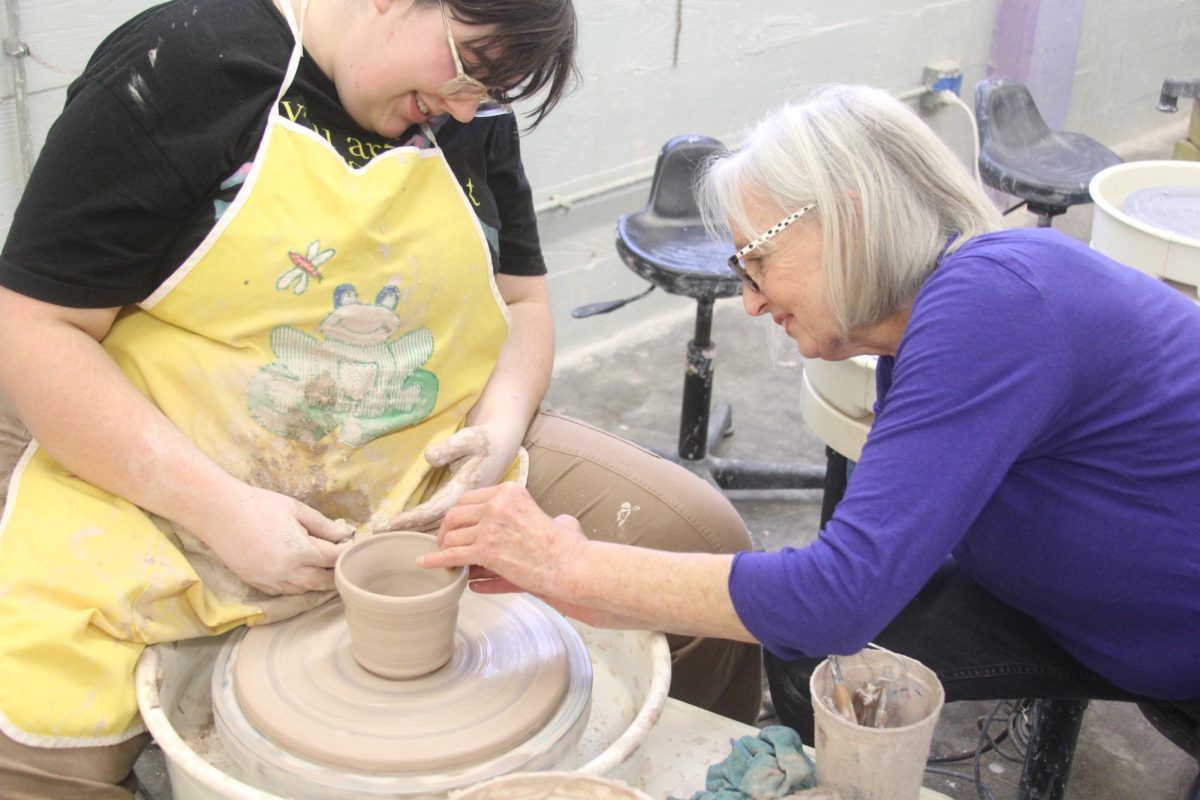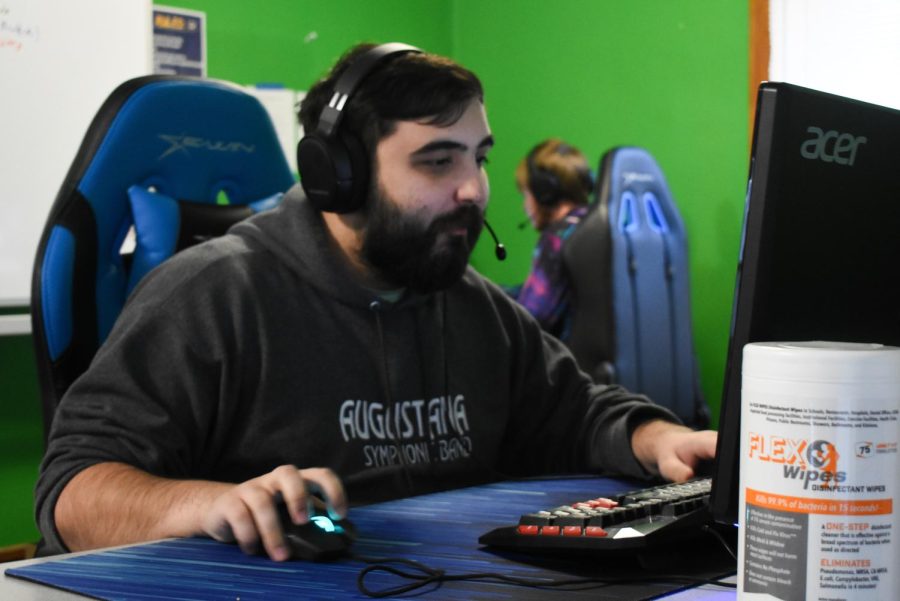Powering up: Paying attention to the rise of collegiate esports
Senior Anthony Zavala plays practice matches of Overwatch at the Augustana Esports House.
April 23, 2022
One of the fastest-growing sports in the world is played on a computer, according to Next College Student Athlete (NCSA). This refers to the growing popularity of esports, which at its core is playing numerous types of video games at a competitive level, similar to a ‘traditional’ sport.
Also paralleling other sports is the notion that from high school, students can get recruited for esports programs, and some of the most prestigious collegiate programs in the world like Harrisburg University have awarded full ride scholarships to their entire squad.
Numerous titles and genres have been recognized as competitive esports by not only the professional scenes, but also colleges. Ranging from first-person shooters like Call of Duty, Overwatch and Valorant to massively-multiplayer online games like League of Legends and DOTA to sports and fighting games like FIFA, Rocket League and Smash Bros, there can definitely be something for everyone.
According to Rolling Stone, it is likely that the global esports market will generate nearly $2 billion in revenue from media deals, sponsorships and broadcasting rights. A post-pandemic world that has rapidly accepted working from computers and hosting virtual events will pave the way for rising interest in doing more activities from the comfort of one’s room.
Bright prospects and futures should facilitate students, parents and colleges to mitigate the stigma that has prevailed for several years. Several have viewed the act of playing games as a waste of time and something that would not assist a student’s future, but the exponential rise of the industry and its dominance over viewing platforms like Twitch and YouTube counter this bias.
Game publishers have also allocated funds and resources to their collegiate scene. For example, the Activision Blizzard Overwatch Collegiate Championships had recently concluded with Maryville University coming out on top in a prize pool where $51,600 in scholarships were awarded.
Augie has been no different as of recently. As someone that has been playing on the Overwatch varsity esports team on campus for the last two seasons, I can attest that the program has been given more resources and potential to grow. Specifically, we will be transitioning into a bigger and better facility next semester where more students can be playing at a time.
Augustana’s team has just come off of a match against St. Ambrose, our biggest rivals, where we were able to play at their facility. It was an unforgettable experience, and the first match we have done in-person since the pandemic started. As our programs continue to grow and develop, I am looking forward to not only more competitions, but also the camaraderie between our esports organizations.
This anecdote serves as a mere microcosm of the world of collegiate esports and how it is beginning to form into a sport of its own. The industry also has benefits outside of monetary scholarships that can be applied into the outside world.
From communication and working as a team to showing a valiant attitude and dedication to performing your best work, the environment of esports is just as rewarding and viable as that of more conventional sports.
Be prepared to see college campuses like ours throughout the country pounce on this opportunity to grow and expand their competitive video gaming programs to capitalize on a prominent global trend.





































































































